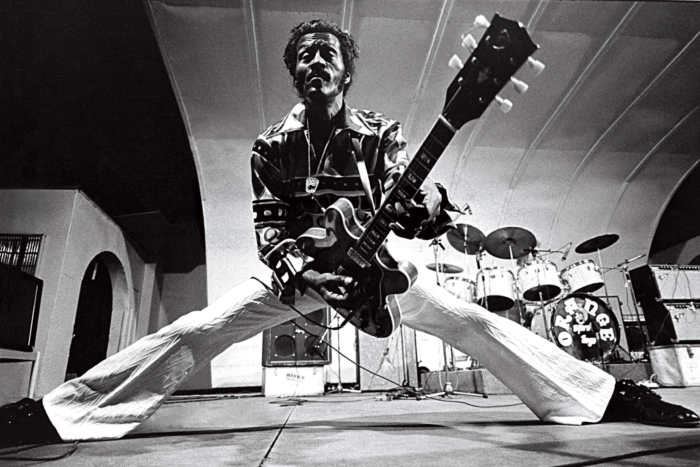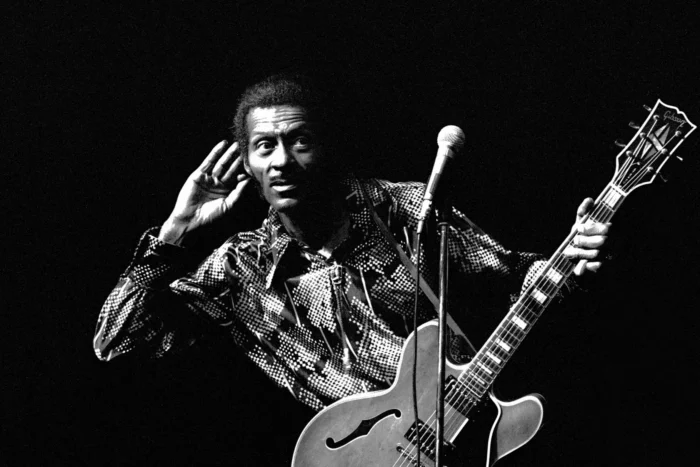
Globe Photos/ZUMA
“The epitome of what it is to be a rock ‘n’ roll guitar player, songwriter and singer.” — Joan Jett
Listen, he was not a good person, nor was he well-liked, but legends don’t have to be good morally upstanding people. Maybe you prefer good people, and I do too – in my personal life – but I don’t put famous people on a pedestal as humans, but I can admire them as artists. So. #itscomplicated
“How do you reconcile good art with the bad person who made the art?”
“I basically DON’T reconcile it.”
That’s how these conversations go for me, and … it doesn’t really go well. lol Sometimes people are like, “Why do you support this person and not that person?” Well because I am one flawed human lady and I do not think algebraically where everything has to come out perfectly. I don’t trip about this. I was chatting online with a (very) famous film critic about this. She reached out to ask me personally what I thought about “supporting” an artist who was not a good person, who, in some cases, did evil things. I was flattered she’d want to know what I thought. I said, “I think it’s up to the individual whether or not they want to support whoever. Totally an individual choice. It’s cool if you DON’T want to support this person, but if I do, I just don’t see a problem with that.” I have wondered if my attitude came partly from Ezra Pound having a place in my childhood, weirdly, because I grew up steeped in my father’s love of James Joyce, and my dad could say “well, Ezra Pound really helped Joyce and a lot of other writers” and then literally in the same breath say “The guy was a fascist wacko.” So maybe I just absorbed that complexity somehow. I do not judge people for having low tolerance for this kind of thing. AT ALL. You do you and I fully support your right to disagree with me. I literally would never argue that you must support something you find intolerable – or show mourning publicly over something you don’t mourn – because that would be authoritarian of me. By the same token, though, if you write about, say, D.W. Griffith or Leni Riefenstahl, withOUT mentioning the complexities in their legacies then, yeah, I’ll side-eye you. You’re being shady. Some people use their art to prop up violent ideologies. I might not be consistent, but consistency is the hobgoblin of small minds, or something like that. I don’t trip about this. I understand others might disagree and that is totally cool.
I’m done with throat clearing.
Let’s listen to the lyrics of “Memphis Tennessee”. I consider them to be one of the high watermarks of rock ‘n roll. Period.
Also let’s enjoy this live performance from 1965. His movements. He always kind of crept around the stage. He didn’t go apeshit. he didn’t need to.
He didn’t just write songs. He told stories. Every song has some kind of arc, he doesn’t just riff on the same idea. He expands. You can see the characters, feel the atmosphere, he pulls out details. He could, though, write a classic blues song.
“Maybellene” was the breakthrough. You can track a lot of music back to “Maybellene”.
With a lot of early rock ‘n roll, you don’t need to listen to the lyrics. They’re stupid. Simplistic. It’s not about being clever. With Berry, you always need to listen. Plus, his guitar playing is so distinctive you can immediately tell who it is even if you can’t SEE him.
“All of Chuck’s children are out there playing his licks.” –Bob Seger
Berry listened to everything and he synthesized it: swing, hillbilly, boogie-woogie, rhythm and blues. He HEARD the synthesis. Elvis performed “Maybellene” on the Louisiana Hayride and it’s a weak showing. He couldn’t get a handle on it. Maybe ’70s Elvis could have but ’50s Elvis couldn’t. Elvis admired Chuck Berry very much, and one of the best parts of the so-called Million Dollar Quartet recording is him and mostly Carl Perkins playing “Brown-Eyed Handsome Man” and cracking up at all the clever lyrics, all the different scenarios, the rhyme schemes. Berry pre-dated them all, as a guy a decade older than the Teen Wave coming in. Berry rode the Teen Wave and wrote songs for teenagers, etc., but he was strictly for grown-ups.
“To me, Chuck Berry always was the epitome of rhythm and blues playing, rock and roll playing. It was beautiful, effortless, and his timing was perfection. He is rhythm supreme. He plays that lovely double-string stuff, which I got down a long time ago, but I’m still getting the hang of. Later I realized why he played that way–because of the sheer physical size of the guy. I mean, he makes one of those big Gibsons look like a ukulele!” — Keith Richards
Forgive me, I can’t remember who said this, either a historian or one of Berry’s contemporaries – something along the lines of “you could hear the influence of gospel in a lot of early rock ‘n roll because most of those guys grew up going to Pentecostal churches but you could just tell that Berry was not and never had been a church-going man.” Which is true. This is not a reflection on his character – because a lot of horrible people go to church regularly – but a reflection of his music: it’s free from gospel, it’s something else, a synthesis, yes, which opened up a 4-lane highway for everybody who came after. Dylan. The Stones. Everyone.
A classic live performance. Again, his guitar is so piercing and commanding, but it’s the lyrics. It’s hard to even HEAR this song anymore because it’s played so often and was covered by everyone … but it’s an anthem of rebellion, while still showing Berry knew the figures of the past, knew all their names, probably listened to them too. There are a lot of inside jokes. His lyrics are for smart people.
He’s kind of the Mark Twain of rock ‘n roll. An American storyteller. He’s also referencing contemporary things, like “blue suede shoes” – a meta commentary on the whippersnappers coming up behind him.
The T.A.M.I. Show is now a legendary event in the early-ish history of rock ‘n roll and if you haven’t done a deep dive into it, I highly recommend it. Years ago (wow) I was on the Film Comment podcast devoted to concert films, and we each – editor-in-chief Nic Rapod, writer Andrew Chan, and myself – had to pick a concert film we wanted to discuss. We discussed the Aretha gospel concert collectively, we discussed Prince’s Sign o’ the Times, Can’s 1972 Free Concert, and I brought The T.A.M.I. Show to the party. The whole thing starts – after the introduction – with Chuck Berry playing “Johnny B. Goode”. Setting the tone. He made everyone SWEAT. What was a concert for kids became a Battle of the Bands, with James Brown giving one of the greatest live performances ever captured on film in the second to last spot. Nobody could follow it. Sadly, the brand new Rolling Stones were last on the bill, and they look scared as shit. Anyway, here’s Chuck Berry, crushing it, early on.
“If you tried to give rock and roll another name, you might call it ‘Chuck Berry’.” — John Lennon
Chuck Berry is in outer space. Here’s the letter Carl Sagan wrote to Chuck Berry:

It’s not an exaggeration to say that without Chuck Berry there’d be no Beatles. There’d be no you name it.

Along those lines, Steve Martin, in a bit on SNL nightly news, reported that the aliens sent back a response after intercepting the Voyager spacecraft:

Not farfetched at all.
Thank you so much for stopping by. If you like what I do, and if you feel inclined to support my work, here’s a link to my Venmo account. And I’ve launched a Substack, Sheila Variations 2.0, if you’d like to subscribe.



